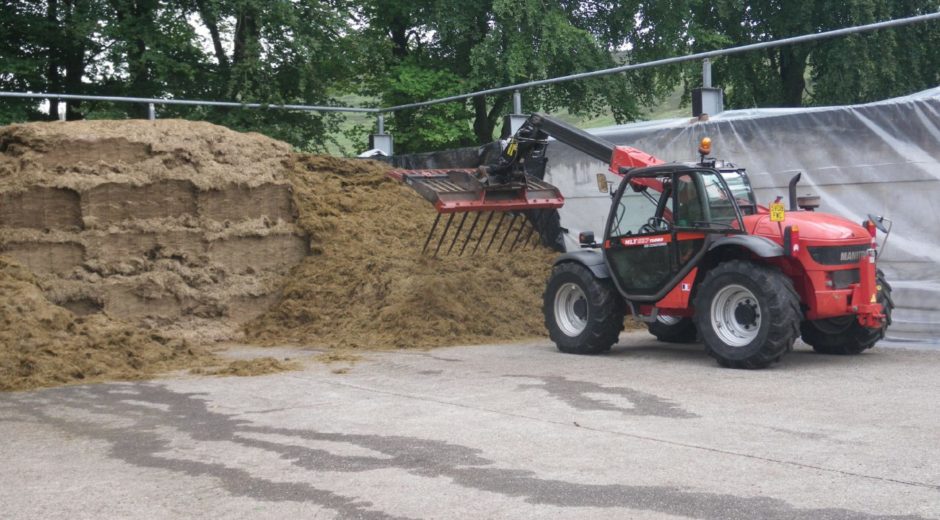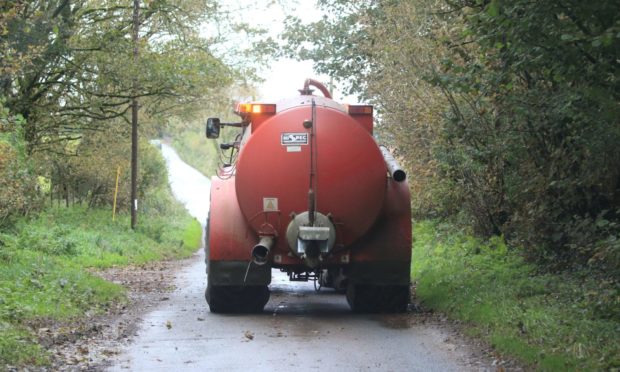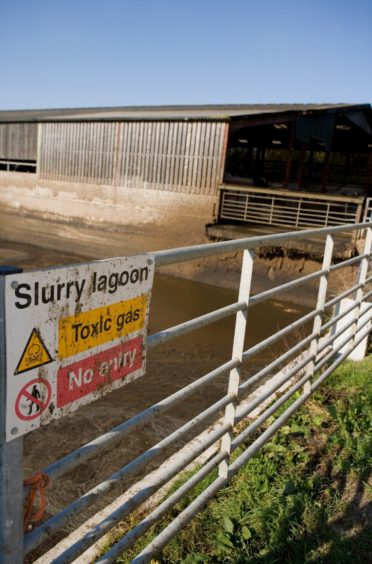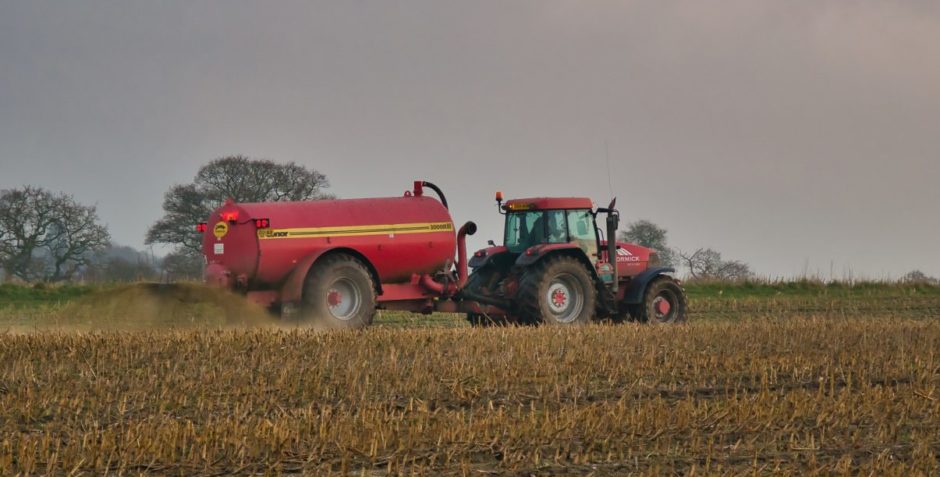Farmers could be driven out of the industry as a result of Scottish Government proposals to reform the rules on slurry, silage and digestate, according to NFU Scotland (NFUS).
Union president Martin Kennedy warned the proposals, which are set out in a government consultation on improving storage and application, would not only bring a costly overreliance on regulatory compliance, they would be unlikely to yield the desired outcomes.
The new proposals are designed to protect water quality and reduce agricultural emissions of ammonia and nitrogenous gases, and they include bringing stores built before 1991 – which are currently exempt from regulations – in to line with current rules.
The union conducted a membership survey and received more than 540 responses from farmers from Shetland to Stranraer who between them look after 140,000 cows and 17,000 pigs. The respondents warned of a huge cost burden to farmers and crofters if the rules were implemented.
Mr Kennedy said NFUS had done the research as the Scottish Government had provided no meaningful impact analysis as to the number and type of agricultural businesses that would be affected by the regulatory proposals.
He added: “The case studies show that Scottish Government’s anticipated benefits of reduced emissions and improved water quality are likely to be relatively insignificant and dwarfed by the negative financial impacts on a significant number of agricultural businesses.
“That has economic implications for Scottish agriculture, Scotland’s rural economy and the wider supply chain.”
In its response to the consultation, NFUS said it was concerned by a degree of “mission creep” of the Nitrate Vulnerable Zone (NVZ) approach, but acknowledged an even blunter whole territory NVZ option was available to the Scottish Government.

Mr Kennedy said farmers would be unable to recover the costs of complying with the new regulations from the marketplace and pointed out the Scottish industry would be at a competitive disadvantage with producers in other countries who would not be faced with the same standards.
He insisted NFU Scotland’s commitment to environmental issues was “unquestionable” and called for “proportionate and enabling regulation” and financial support to be provided if Scottish Government pursues the proposals.
“Both are needed to deliver the desired environmental outcomes without excessive, punitive or business threatening costs to individual farm businesses. Public goods should not be met by private costs,” he added.


